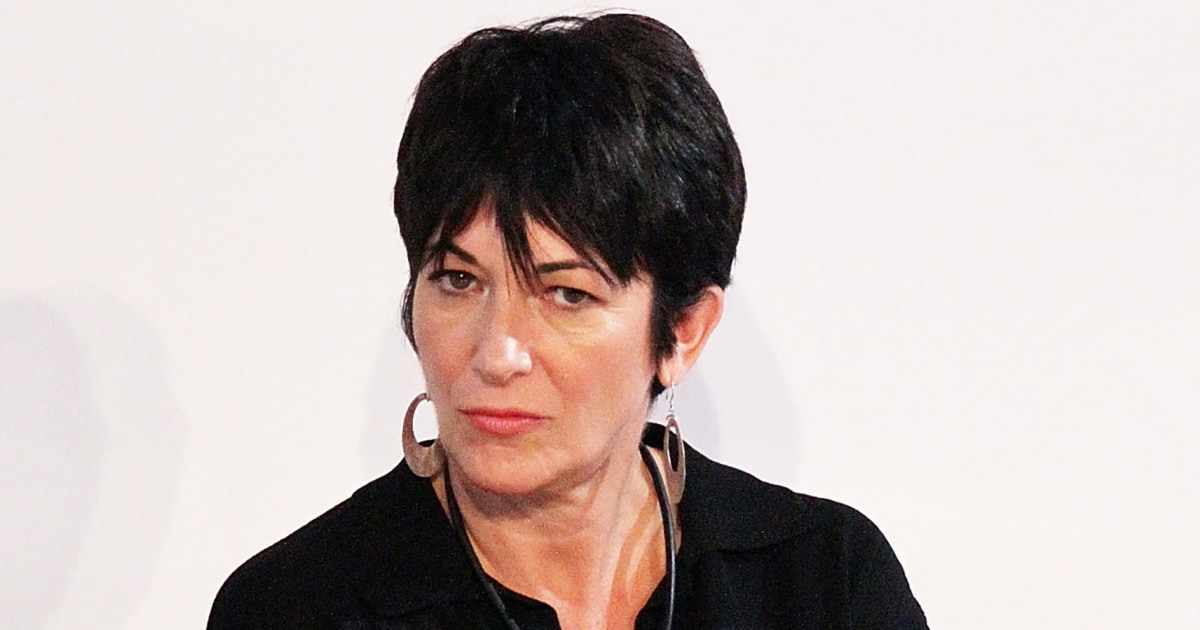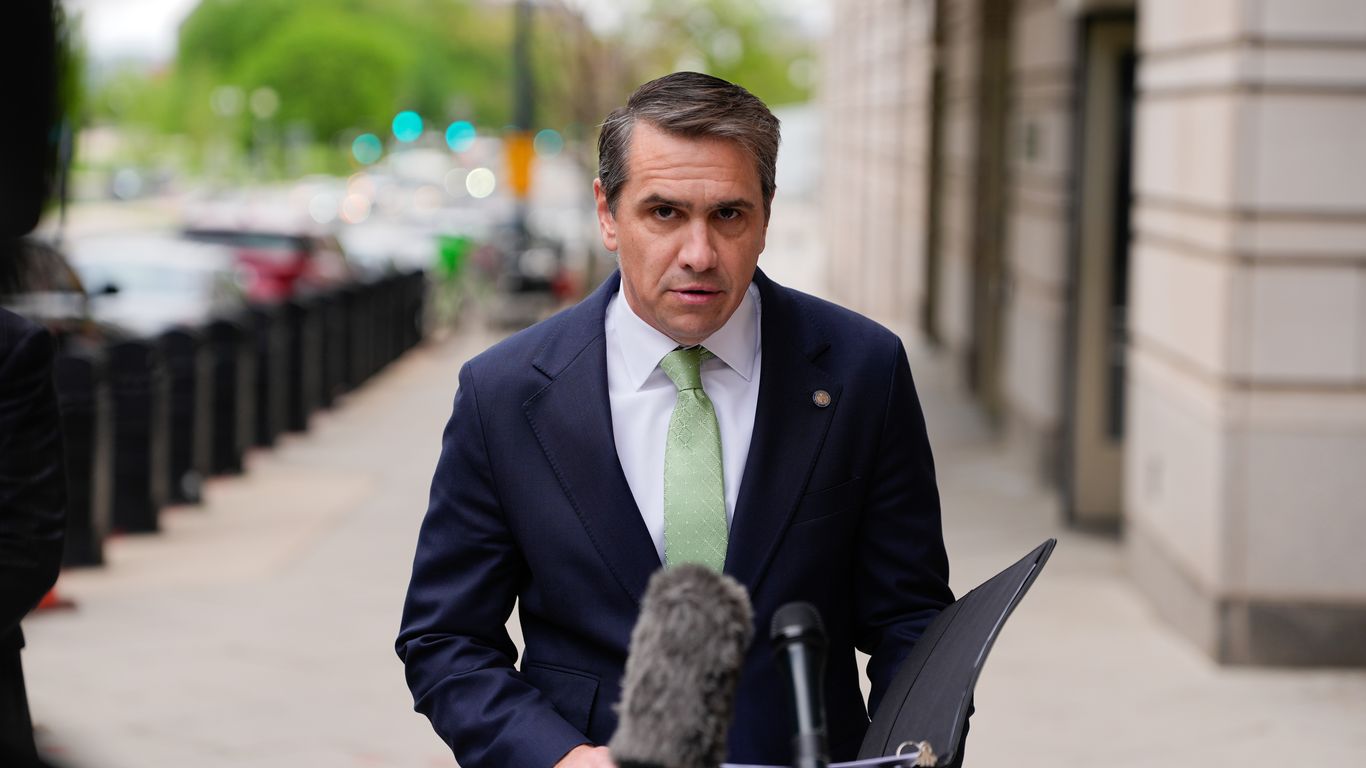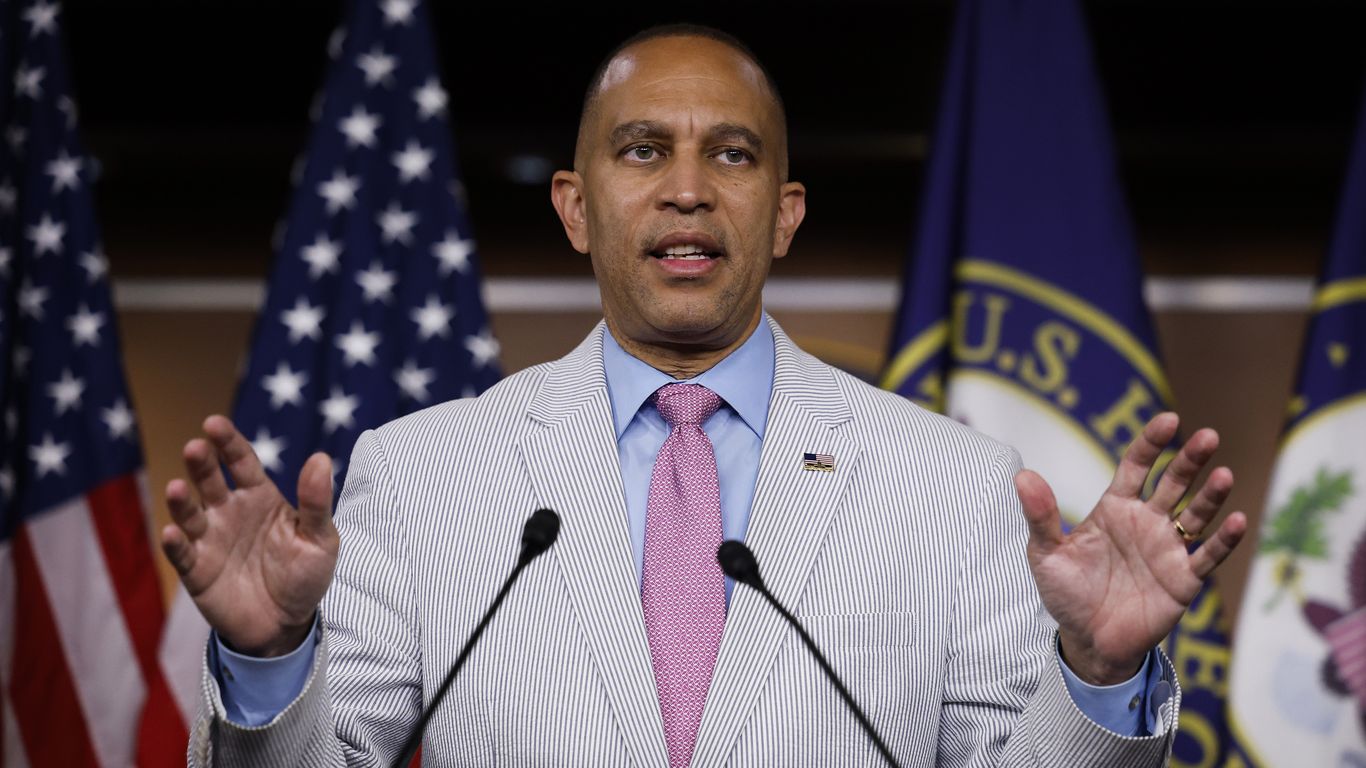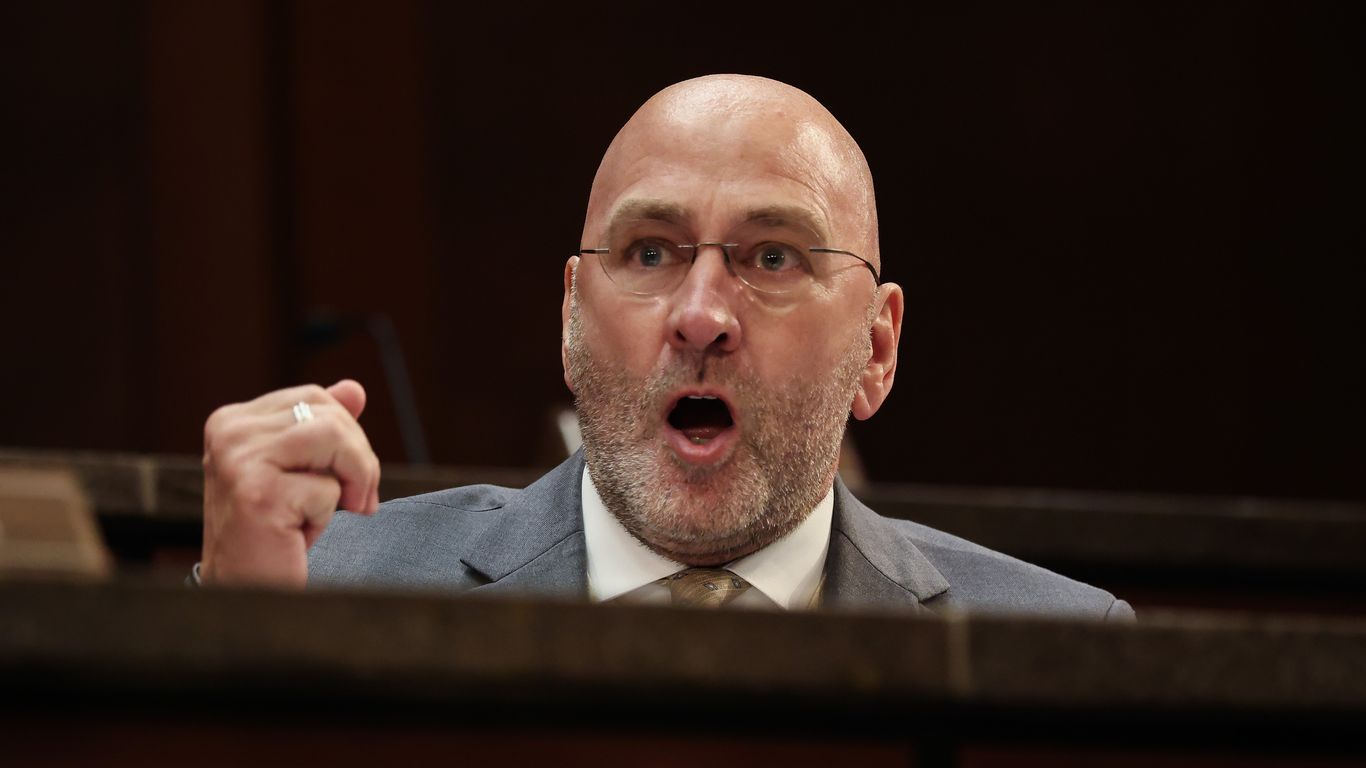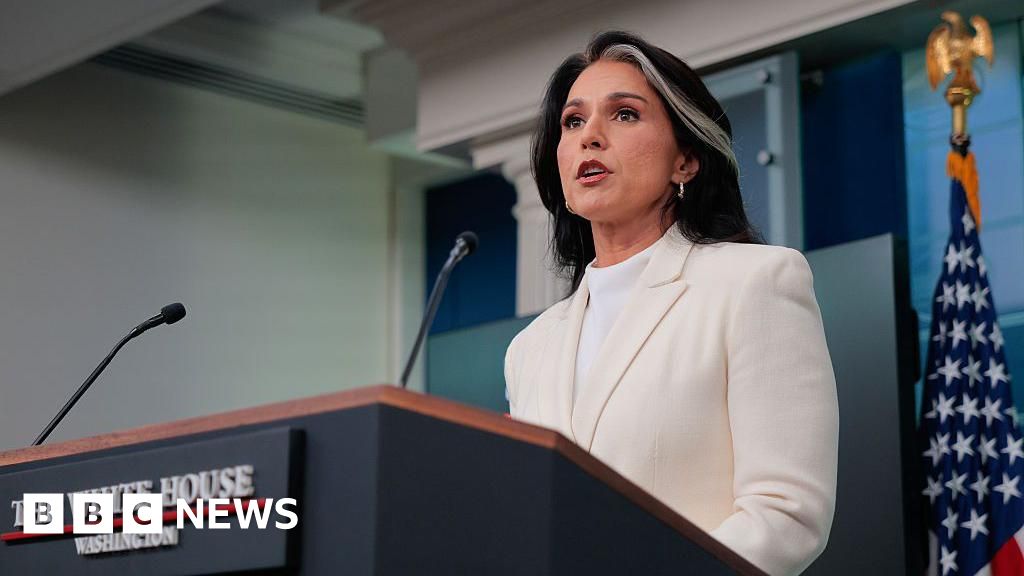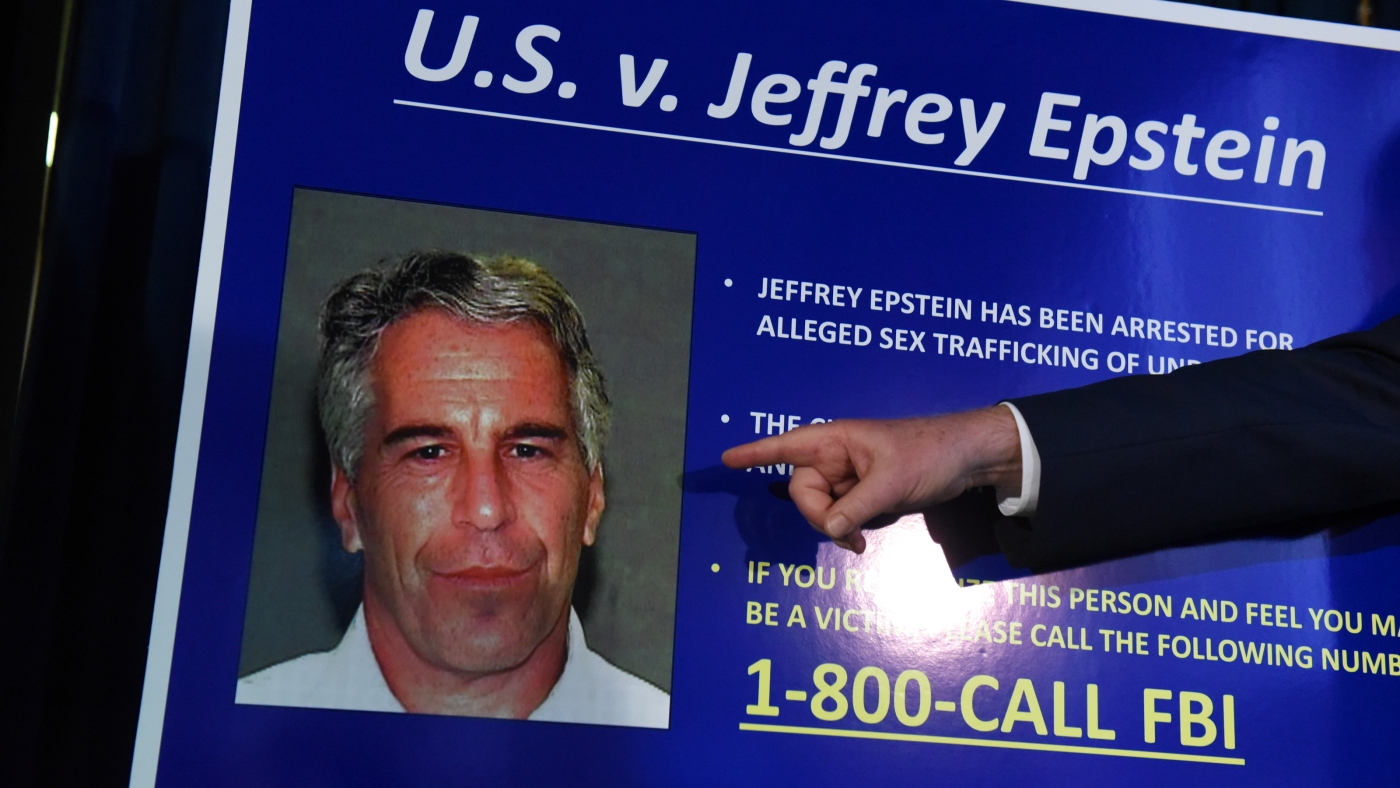House Oversight Committee Issues Subpoenas in Epstein Investigation

Introduction
The House Oversight Committee has taken a major step in the investigation into the late convicted sex offender Jeffrey Epstein. The committee has issued nearly a dozen subpoenas to the Justice Department and high-profile Democratic and Republican figures for files and information related to Epstein. This move comes amid mounting public pressure to uncover the truth about Epstein's crimes and any potential involvement of powerful figures.
Key Details
The subpoenas include requests for documents, emails, and any other information related to Epstein's case. In addition, the committee has also issued subpoenas to individuals who had close ties to Epstein, including his former attorney and associates who were involved in his plea deal in 2008. This move by the committee is a significant development in the investigation and shows a strong commitment towards uncovering the truth about Epstein's crimes and any potential cover-ups.
Impact
The House Oversight Committee's actions have the potential to shed light on the extensive web of connections and powerful figures linked to Epstein. This could have far-reaching consequences for the Justice Department, as well as for both Democrats and Republicans who are under scrutiny for their ties to Epstein. This move also sends a strong message to the public that the investigation into Epstein's crimes will not be swept under the rug. The subpoenas have the potential to bring justice for the victims and hold those responsible accountable for their actions.
Jeffrey Edward Epstein (January 20, 1953 – August 10, 2019) was an American financier and convicted sex offender whose life and crimes attracted intense media scrutiny and public controversy[1][3]. Born and raised in Brooklyn, New York, Epstein initially worked as a teacher at the Dalton School in Manhattan before transitioning to a career in finance, joining Bear Stearns and later establishing his own investment firms[1][2]. He managed the wealth of billionaire Leslie Wexner, amassing significant personal fortune and cultivating a social circle that included politicians, celebrities, business leaders, and even royalty[2][3].
Epstein’s professional achievements were overshadowed by criminal allegations. In 2005, police in Palm Beach, Florida, began investigating him after a parent reported he had sexually abused her 14-year-old daughter[1]. Federal authorities later identified dozens of girls, some as young as 14, whom Epstein had allegedly abused[1][6]. In 2008, he pleaded guilty in Florida state court to procuring a child for prostitution and soliciting a prostitute as part of a controversial plea deal, serving nearly 13 months in custody with work release privileges[1][2]. Despite his conviction, Epstein avoided more severe federal charges at the time.
In July 2019, Epstein was arrested again on federal charges for sex trafficking minors in Florida and New York[1][2]. While awaiting trial in a Manhattan jail, he was found dead in his cell on August 10, 2019; the medical examiner ruled his death a suicide by hanging[1][3]. The circumstances surrounding his death, including missing and modified CCTV footage, fueled widespread public skepticism and conspiracy theories[1]. In July 2025, the FBI released surveillance footage supporting the suicide ruling, though questions about the investigation persist[1].
Epstein’s case remains highly relevant due to ongoing lawsuits by his victims, investigations into his associates, and the release of thousands of previously sealed documents in early 2024 that renewed public interest in his network and alleged co-conspirators[2]. His former associate, Ghislaine Maxwell, was convicted of related charges, underscoring the lasting impact of his crimes[2]. Discussions about accountability, the influence of wealth and power, and the treatment of survivors continue to shape the public dialogue around Epstein’s legacy[2][5]. The **United States House Committee on Oversight and Government Reform** is a powerful standing committee within the House of Representatives, tasked with overseeing the federal government’s operations to ensure efficiency, effectiveness, and accountability[1][3][6]. Established in 1816, it has evolved into the House's chief watchdog committee with broad investigatory powers covering nearly all aspects of government, from national security and healthcare to information technology and federal workforce policies[1][4][6].
The committee’s mission is to protect taxpayers by making sure government funds are well spent and government agencies operate transparently and efficiently. It actively investigates waste, fraud, abuse, and mismanagement, working closely with citizen watchdogs and employing bipartisan oversight to hold federal agencies accountable[3][6]. It has legislative jurisdiction over areas such as government procurement, federal personnel systems, the Postal Service, and the District of Columbia, among others[3]. This broad scope allows it to address emerging issues across government functions, including cybersecurity and innovation, economic growth, law enforcement, and regulatory reforms[1][6].
The committee is composed of members from both major political parties, with its membership and leadership fluctuating based on the House majority. During the current 119th Congress (2025), it consists of 47 members and is divided into several permanent subcommittees specializing in sectors like Healthcare and Financial Services, Cybersecurity, Government Operations, and Military and Foreign Affairs[1][6]. These divisions enable detailed and focused oversight and legislative reviews.
Key achievements of the committee include exposing government inefficiencies, preventing wasteful spending, and driving reforms to improve federal operations. Its ability to conduct government-wide oversight makes it uniquely influential in shaping policy and ensuring government responsiveness to public needs[4][7]. Under the current chairmanship of James Comer, the committee continues to emphasize transparency and reform, particularly in technology and government innovation sectors[6].
In summary, the House Oversight Committee stands as a central pillar of congressional accountability, combining historic authority The United States Department of Justice (DOJ) is the principal federal agency responsible for enforcing federal laws, ensuring public safety, and protecting civil rights. Headquartered in Washington, D.C., the DOJ operates under the leadership of the Attorney General, who serves as a key member of the President’s Cabinet. As of 2025, Pam Bondi holds this position, having taken office in February and quickly shaping the department’s priorities.
Established in 1870 during President Ulysses S. Grant’s administration, the DOJ’s roots trace back to the creation of the Attorney General’s office in 1789. Over the years, it has grown into a vast organization with more than 115,000 employees and over 40 component agencies, including the Federal Bureau of Investigation (FBI), Drug Enforcement Administration (DEA), and U.S. Marshals Service. The DOJ also houses specialized divisions for criminal, civil, antitrust, tax, civil rights, and national security matters, and oversees 94 U.S. Attorney offices nationwide.
The DOJ’s mission centers on upholding the rule of law, safeguarding national security, and defending civil liberties. In 2025, the department has shifted its enforcement focus, prioritizing areas such as healthcare fraud, customs and tariff evasion, and corporate misconduct, especially involving foreign adversaries and financial gatekeepers. Recent policy changes have emphasized efficiency in investigations and reduced reliance on corporate compliance monitors, reflecting a broader effort to minimize regulatory burdens on businesses.
Notably, the DOJ has also been tasked with reviewing past government conduct to address concerns about the “weaponization” of federal agencies, ensuring accountability and restoring public trust. For business and technology leaders, the DOJ’s evolving priorities—particularly in areas like cybersecurity, antitrust, and international trade—have significant implications for compliance, risk management, and corporate governance. ## Overview of the Democratic Party
The Democratic Party is the oldest continuing political party in the United States, with its roots tracing back to 1792 as the Democratic-Republican Party. Founded by Thomas Jefferson and James Madison, it initially advocated for a decentralized government and states' rights, opposing a strong central authority[1][2]. Over time, the party evolved, becoming more progressive and supportive of federal government intervention in social and economic affairs.
## History
The modern Democratic Party was formally established in 1828, with Andrew Jackson's presidential campaign marking a significant turning point. Jackson's successful campaign expanded voting rights to all white men, regardless of land ownership, and further reduced federal power[3][6]. The party became deeply divided during the Civil War era, with Northern Democrats supporting limited slavery expansion and Southern Democrats advocating for its perpetuation[3][5]. Post-Civil War, the party became a stronghold for Southern whites who opposed Reconstruction[3].
## Key Achievements
The Democratic Party has played a pivotal role in shaping U.S. history:
- **Civil Rights**: The party supported key civil rights legislation, including the Voting Rights Act and the Civil Rights Act of 1964.
- **Social Programs**: Democrats have been instrumental in establishing and expanding social programs like Social Security, Medicare, and Medicaid.
- **Economic Policies**: The party has often championed progressive economic policies, including labor rights and environmental protection.
## Current Status
Today, the Democratic Party is a major force in U.S. politics, advocating for a strong federal government role in addressing social and economic issues. It emphasizes progressive policies on healthcare, climate change, and economic inequality[6].
## Notable Aspects
- **Symbolism**: The party's symbol, the donkey, originated from Andrew Jackson's opponents calling him a "jackass," which his supporters adopted as a mascot[6].
- **Diversity**: The party has become increasingly diverse, representing a wide range of socio-economic and The **Republican Party**, also known as the **GOP (Grand Old Party)**, is one of the two major political parties in the United States, founded in 1854 primarily by anti-slavery activists opposing the Kansas-Nebraska Act and the expansion of slavery into U.S. territories[1][5]. It was formed from a coalition of former Whigs, Democrats, and Free Soil party members who shared opposition to slavery and a desire for a national political force promoting economic development and social order[2][5].
The party's early base included northern Protestants, businessmen, factory workers, professionals, and prosperous farmers. It strongly supported pro-business policies like the national banking system, the gold standard, railroads, and high tariffs[1][3]. Abraham Lincoln, the first Republican president elected in 1860, led the party through the Civil War, championing the abolition of slavery and the preservation of the Union. This solidified the GOP’s dominance in national politics for decades, especially in the North, while it remained weak in the South[1][5][6].
Historically, the Republican Party was instrumental in major social reforms, including the Emancipation Proclamation and the passage of the 13th, 14th, and 15th Amendments, which abolished slavery, guaranteed equal protection, and secured voting rights for African Americans, respectively[6]. The party also supported women's suffrage early on, backing the 19th Amendment[6].
In the 20th century, Republicans were associated with both conservative economic policies—favoring reduced taxes, limited government regulation, and individual economic freedom—and a strong national defense[7]. The party experienced ideological splits, notably in 1912 when Theodore Roosevelt led a progressive faction away from the conservative wing[1][5]. Today, the GOP continues to promote conservative social policies and states’ rights, opposing extensive federal intervention and advocating free-market principles[7].
For readers interested in business and technology, Discover related stories and their connections to this article Explore connected events with detailed insights and relationships Key entities mentioned across connected events Discover patterns and trends across related stories CNN review finds dozens of FBI witness interviews missing from Epstein files, fueling questions about transparency. Trump escalates pressure on Iran with sanctions, talks, and possible military options as negotiations resume. Trump administration unveils an aggressive crackdown on healthcare fraud, freezing Minnesota funds and expanding Medicare/Medicaid integrity nationwide. Exploring White House push for Israel to strike Iran first, amid worries of retaliation, casualties, and political calculations. Live updates on Donald Trump's state of the union address, highlighting border security, a booming economy, and executive orders.About the People Mentioned
Jeffrey Epstein
About the Organizations Mentioned
House Oversight Committee
Justice Department
Democratic Party
Republican Party
🔗 Connected Events Overview
📊 Quick Insights
📅 Connected Events Timeline
👥 People Involved in Connected Events
Connected through:
Connected through:
🏢 Organizations & Products
🏢 Organizations
🛍️ Products
💡 Connected Events Insights
🔥 Trending Topics
Trending Blogs in Politics

Missing FBI Records Spark Epstein Files Controversy

Trump Administration Escalates Iran Pressure: Sanctions, Diplomacy, and Military Contingencies

Federal Crackdown on Medicaid Fraud: Minnesota First, Nationwide Expansion

White House Strategy: Israel Might Strike Iran First

Trump's Bold State of the Union: Live Updates on a Secure Border and Booming Economy

